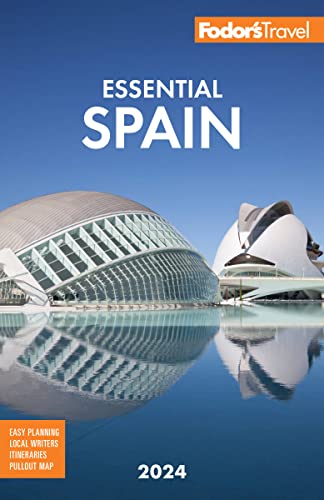Spain Today
Politics
Since the advent of democracy in 1978 and until 2014, Spanish politics was dominated by the two largest parties: the socialist Partido Socialista Obrero Español (PSOE) and the right-wing Partido Popular (PP). In 2014, however, as Spain continued to battle an economic crisis and as some high-profile corruption scandals came to light, the political scenario changed. "Renovation" became the watchword, and Spaniards clamored for more ethical behavior from public figures. On the back of this, two new parties entered the political arena: Unidas Podemos (Together We Can), a left-wing grassroots party; and Ciudadanos (Citizens), a pro-business, center-right party that strongly opposes Catalan nationalism. General elections in June 2016 resulted in a deadlock, with no party reaching the required 176-seat majority. The PP under Prime Minister Mariano Rajoy, however, formed a minority government with support from Ciudadanos.
A push for Catalan independence, led by separatist parties holding a slim majority in the Catalan regional legislature, then created a major constitutional crisis. On October 1, 2017, separatist politicians presided over an independence referendum (similar to the one celebrated in Scotland in 2014), which had been outlawed by Spanish courts. The ruling PP government in Madrid took a hardline stance against the independence movement, sending national police and civil guards into Catalonia to halt voting. Newspapers worldwide were splashed with images of police beating unarmed voters at polling stations. To punish its renegade region, Madrid imposed emergency rule on Catalonia, suspending its autonomy and jailing top regional politicians. Catalonia repeated regional elections in December 2017, with the same result: a slim majority for separatists, and a stalemate with Madrid. A criminal trial of leading figures in the independence movement is likely to run for some time, but tensions in Barcelona have eased. Tourists are safe and there has been no appreciable violence even at large demonstrations, but it is advisable to avoid them when possible.
The Economy
After Spain went into recession in 2008, stringent financial measures were imposed by the European Union and the IMF. Unemployment soared to 26%, and youth unemployment reached double that. Since 2014, the economy has bounced back: GDP growth for 2017 was 3.1%, one of the highest rates in Europe. Forecasts for 2019 expect Spain’s economy to expand 2.2%, higher than for Germany, France, or Italy and nearly double the rate of the eurozone. While tourism to Catalonia briefly slumped in the fall of 2017, it has surged in the rest of the country. In 2017, Spain surpassed the United States to become the world's second-most-visited country after France.
Religion
The state-funded Catholic Church, closely tied to the right-wing PP and with the national Cadena Cope radio station as its voice, continues to hold considerable social and political influence in Spain, with members of secretive groups such as Opus Dei and the Legionarios de Cristo holding key government and industry positions.
Despite the church's influence, at street level Spain has become a secular country, as demonstrated by the fact that 70% of Spaniards supported the decidedly un-Catholic law allowing gay marriage. And although more than 75% of the population claims to be Catholic, less than 20% go to church on a regular basis.
More than 1 million Muslims reside in Spain, making Islam the country's second-largest religion.
The Arts
Spain's devotion to the arts is clearly shown by the attention, both national and international, paid to its annual Princesa de Asturias prize, where Princess Leonor hands out accolades to international high achievers such as Frank Gehry, Francis Ford Coppola, and Bob Dylan and to homegrown talent such as the writer Antonio Muñoz Molina, who has taught at the City University of New York.
Film is at the forefront of the Spanish arts scene. Spain's most acclaimed director, Pedro Almodóvar, is still at it, most recently with a 2019 film, Pain and Glory, starring fellow Spaniards Penélope Cruz and Antonio Banderas. The Bookshop, an English-language film directed and produced by Spaniards, won Best Film and Best Director awards at the 2018 Goya Awards, Spain's version of the Oscars.
While authors such as Miguel Delibes, Rosa Montero, and Maruja Torres flourish in Spain, few break onto the international scene, with the exception of Arturo Pérez Reverte, whose books include Captain Alatriste and The Fencing Master, and Carlos Ruiz Zafón, author of the acclaimed Shadow of the Wind, The Angel’s Game, and Prisoner of Heaven. Spain's contribution to the fine arts is still dominated by three names: the Mallorca-born artist Miquel Barceló; the Basque sculptor Eduardo Chillida, who died in 2002; and the Catalan abstract painter Antoni Tàpies, who died in 2012.
Sports
With Real Madrid and FC Barcelona firmly established as international brands, and with La Liga recognized as one of the world's most exciting leagues, soccer remains the nation's favorite sport. The national soccer team, known as La Roja (The Red One), won the World Cup in 2010 and has won the European Cup three times—a record tied only by Germany. In other sports, national heroes include Rafael Nadal, the first tennis player to hold Grand Slam titles on clay, grass, and hard court; Garbiñe Muguruza, the 2017 Wimbledon champion; six-time NBA All-Star Pau Gasol and his two-time All-Star brother Marc; and WNBA star Anna Cruz, who plays for the Minnesota Lynx. Motorsports are hugely popular in Spain; Formula 1 champion Fernando Alonso has recently retired but all-time-great Marc Marquez continues to dominate in Grand Prix motorcycle road racing.




